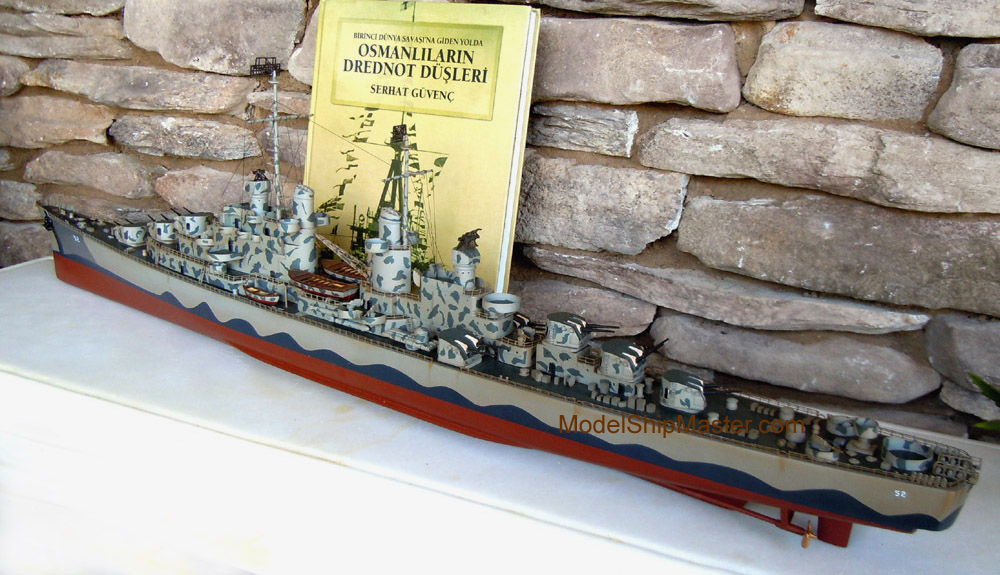|


256-bit encryption
$500,000 protection

|
USS JUNEAU CL-52
USS Juneau (CL-52) was
a United States Navy Atlanta-class light cruiser
sunk at the Naval Battle of Guadalcanal in November
1942. In total 687 men, including the five Sullivan
brothers, were killed in action.
.JPG)
On 8 November, Juneau
departed Nouméa, New Caledonia under the command of
Rear Admiral Richmond K. Turner to escort
reinforcements to Guadalcanal. The force arrived
there early morning on 12 November, and Juneau took
up her station in the protective screen around the
transports and cargo vessels. Unloading proceeded
unmolested until 1405, when 30 Japanese planes
attacked the alerted United States group.
The AA
fire was effective, and Juneau alone accounted for
six enemy torpedo bombers shot down. The few
remaining Japanese planes were in turn attacked by
American fighters and only one bomber escaped. Later
in the day, an American attack group of cruisers and
destroyers cleared Guadalcanal on reports that a
large enemy surface force was headed for the island.
At 0148 on 13 November, Rear Admiral Daniel J.
Callaghan's relatively small Landing Support Group
engaged the enemy. The Japanese force consisted of
two battleships, one light cruiser, and nine
destroyers.
.jpg)
Because of bad weather and
confused communications, the battle occurred in near
pitch darkness and at almost point-blank range as
the ships of the two sides became intermingled.
Juneau was struck on the port side by a torpedo
causing a severe list, and necessitating withdrawal.
Before noon on 13 November, Juneau, along with two
other cruisers damaged in the battle headed toward
Espiritu Santo for repairs. Juneau was steaming on
one screw, keeping station 800 yards off the
starboard quarter of the likewise severely damaged
San Francisco. She was down 12 ft by the bow, but
able to maintain 13 knots. A few minutes after
1100, two torpedoes were launched from submarine
I-26. These were intended for San Francisco, but
both passed ahead of her. One struck Juneau in the
same place that had been hit during the battle.

There
was a great explosion; Juneau broke in two and
disappeared in just 20 seconds. Fearing more attacks
from I-26, and wrongly assuming from the massive
explosion that there were no survivors, Helena and
San Francisco departed without attempting to rescue
any survivors. In fact, more than 100 sailors had
survived the sinking of Juneau. They were left to
fend for themselves in the open ocean for eight days
before rescue aircraft belatedly arrived. While
awaiting rescue, all but 10 died from shark attacks.
As about the five Sullivan brothers: two survived
the sinking, only to die in the water, two
presumably went down with the ship. Some reports
indicate the fifth brother also survived the
sinking, but disappeared during the first day in the
water.
.jpg)
We build this primarily
wood USS Juneau
model in 2 sizes:
33" long (1/200 scale) and 19" long (1/350 scale).
A wooden base is included. Please contact us for prices
and lead time.
"Thanks for the update on the
Arizona. I
looked at the progress pictures.Very, very
nice.
And again let me say that the
Juneau is
an absolutely great production.
My model of the USS San Francisco (CA-38)
[constructed by a CA-38 artisan many years
ago] and of the SS Jeremiah O'Brien
(constructed for me by you guys, Model Ship
Master) are temporarily on display in the new
Veteran's Hall here in Dixon; and will be soon
joined by the Juneau, (which at moment
still sits in all its glory in my front room) and
when received, the Arizona.
This, my personal collection, as it grows, will also be on display at other public
locations here in Dixon--before winding up in a
permanent museum display home here in California
or somewhere else in the West. My best, Heber"
Learn more about the
USS Juneau here:
https://en.wikipedia.org/wiki/USS_Juneau_(CL-52)
|